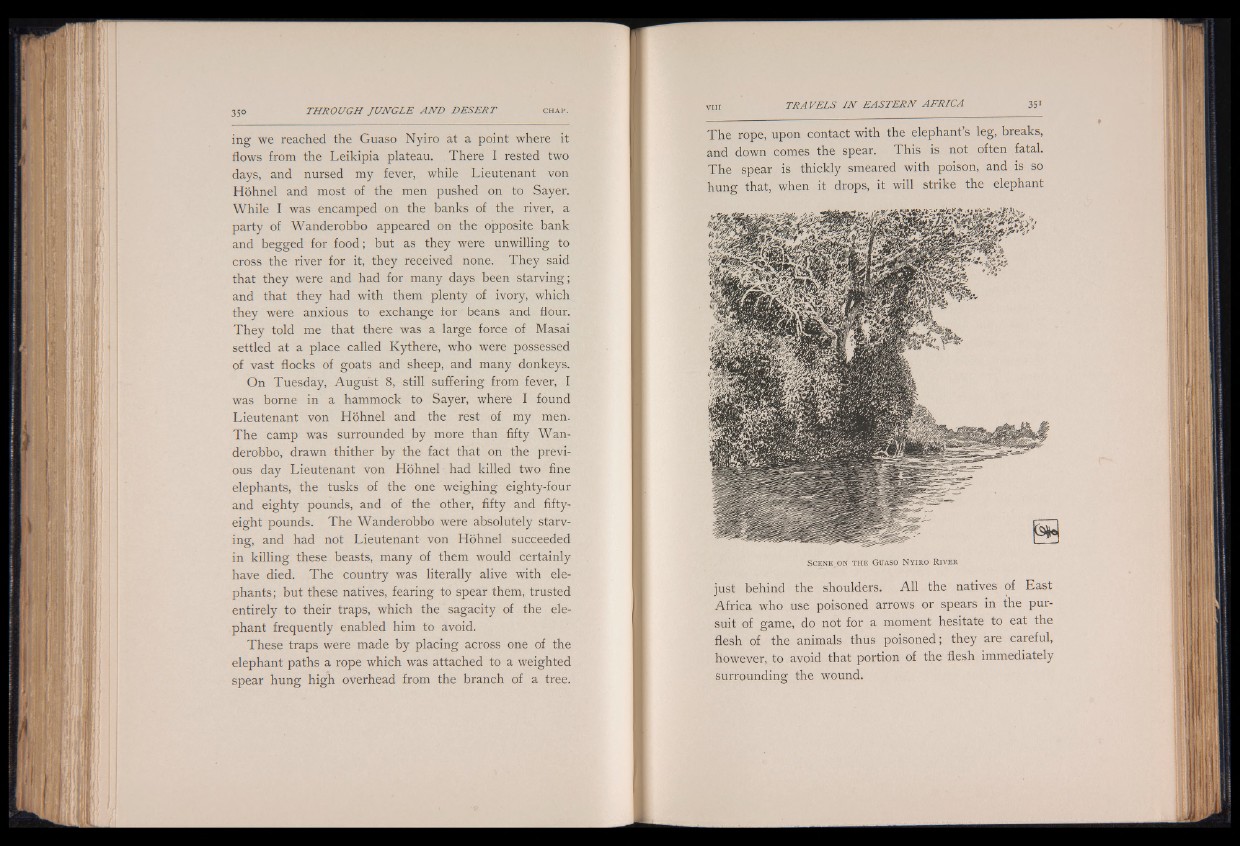
ing we reached the Guaso Nyiro at a point where it
flows from the Leikipia plateau. There I rested two
days, and nursed my fever, while Lieutenant von
Hohnel and most of the men pushed on to Sayer.
While I was encamped on the banks of the river, a
party of Wanderobbo appeared on the opposite bank
and begged for food; but as they were unwilling to
cross the river for it, they received none. They said
that they were and had for many days been starving;
and that they had with them plenty of ivory, which
they were anxious to exchange for beans and flour.
They told me that there was a large force of Masai
settled at a place called Kythere, who were possessed
of vast flocks of goats and sheep, and many donkeys.
On Tuesday, August 8, still suffering from fever, I
was borne in a hammock to Sayer, where I found
Lieutenant von Hohnel and the rest of my men.
The camp was surrounded by more than fifty Wanderobbo,
drawn thither by the fact that on the previous
day Lieutenant von Hohnel had killed two fine
elephants, the tusks of the one weighing eighty-four
and eighty pounds, and of the other, fifty and fifty-
eight pounds. The Wanderobbo were absolutely starving,
and had not Lieutenant von Hohnel succeeded
in killing these beasts, many of them would certainly
have died. The country was literally alive with elephants;
but these natives, fearing to spear them, trusted
entirely to their traps, which the sagacity of the elephant
frequently enabled him to avoid.
These traps were made by placing across one of the
elephant paths a rope which was attached to a weighted
spear hung high overhead from the branch of a tree.
The rope, upon contact with the elephant s leg, breaks,
and down comes the spear. This is not often fatal.
The spear is thickly smeared with poison, and is so
hung that, when it drops, it will strike the elephant
S c e n e o n t h e G u a s o N y i r o R i v e r
just behind the shoulders. All the natives of East
Africa who use poisoned arrows or spears in the pursuit
of game, do not for a moment hesitate to eat the
flesh of the animals thus poisoned; they are careful,
however, to avoid that portion of the flesh immediately
surrounding the wound.